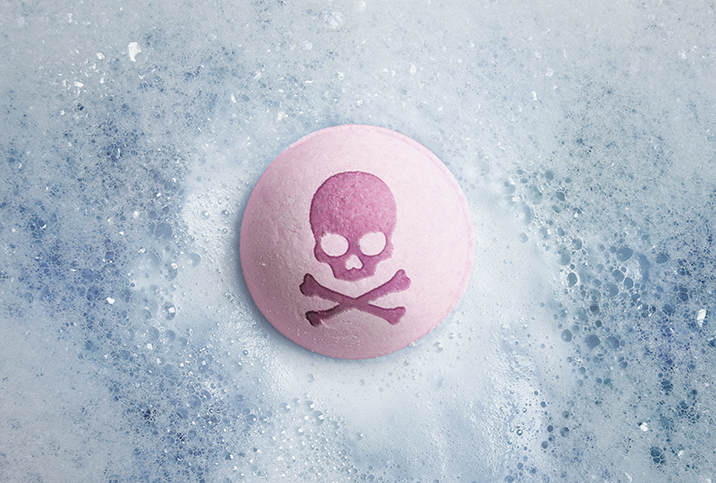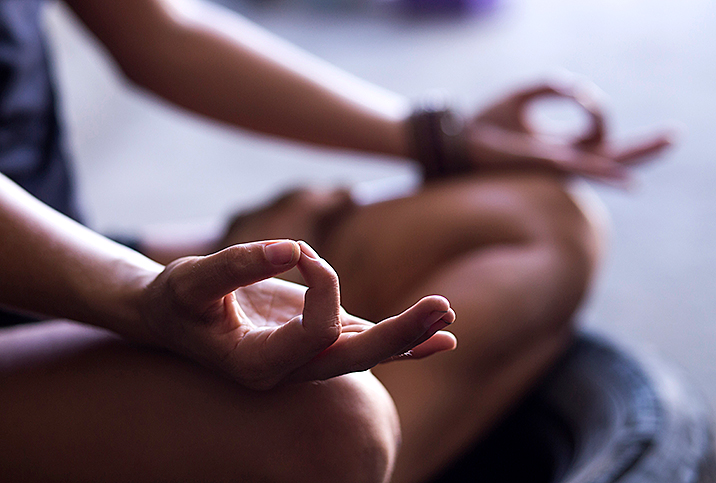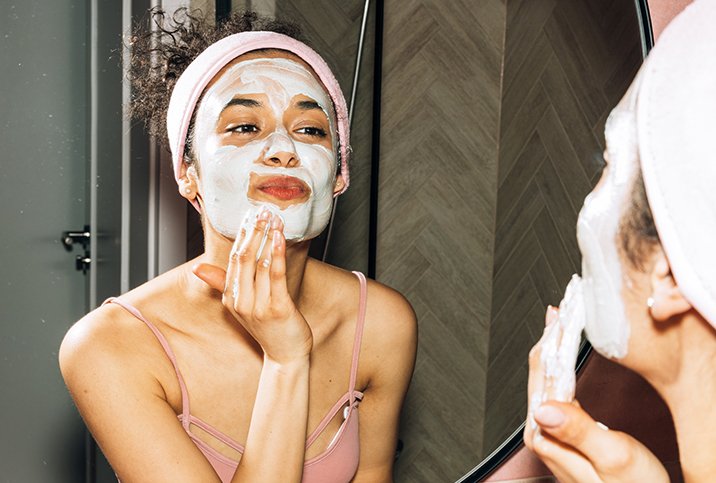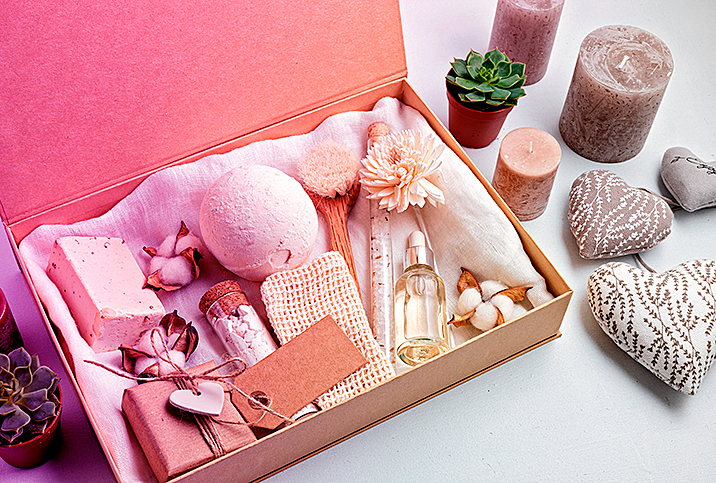Bath Products Are Fun, But Could They Hurt Your Sexual Health?

One of the most pleasurable forms of self-care is taking a bath, and that's a hill I'll die on. The only thing that can make it better, other than a book and dimmed lighting, is a bath product. I'm talking bubble bath, bath bombs and bath salts—scented, of course. While hygiene alone can boost our mood, a bath product makes it more fun, right?
However, I've heard these products can be rough on your vulva, leading to infections. Is that an old wives' tale, or is it true? Bath products are sometimes marketed as "tested" and "pure"—more on that later—but we talked to experts to make sure.
I hate to burst your bubble (bath)…
To be clear, some people may be able to use these products safely.
"I don't find that there is a 'one fits all' rule. Not all vaginas and vulvas are created the same," said Angela Jones, M.D., a fellow of the American Congress of Obstetricians and Gynecologists. "Some may find that they aren't affected by the use of products with scents [and] perfumes."
But cue my tears, because she and another expert said bath products aren't the best idea in general. "Unfortunately, some ingredients in bath products can cause discomfort [or] harm," said Lauren Demosthenes, M.D., an OB-GYN and the senior medical director of Babyscripts.
"Before using, read the label and avoid products with sulfates, parabens, formaldehyde and methylisothiazolinone," she continued. "These are often part of the fragrances, dyes and preservatives used in the bath product."
'Unfortunately, some ingredients in bath products can cause discomfort [or] harm.'
Staying away from these items—especially ones with glitter—is especially a good idea if you have sensitive, dry or irritated skin, as well as an existing vaginal infection (such as a yeast infection), eczema, hemorrhoids or fissures. The products could worsen your condition or result in contact dermatitis, she explained. (Symptoms of the latter include a rash, itchy skin, dry skin, burning, stinging and more.)
Kids are especially at risk: "Young children who have not yet reached puberty tend to have burning urination more frequently as an irritant reaction to bath products," said Laura Purdy, M.D., medical director at Wisp.
If you notice problems down there, these doctors recommend getting in touch with your OB-GYN. "I do not recommend ever trying to self-diagnose because the symptoms of bacterial vaginosis, noninfectious urethritis and yeast infections can be very similar," Purdy said. "I recommend consulting your doctor so that appropriate workups can be done to determine the proper treatment for you."
Trust doctors, not marketing
So, problem number one: Bath products can be unsafe for your sexual health. Problem number two: The branding may not be as promising as it sounds, which is why those dangers listed above may be news to you.
Maria Reitan, a representative from The Village Company, which includes popular brands such as Mr. Bubble, said they're unable to answer any questions about their products' safety or marketing at this time. But, the front of a Mr. Bubble bubble bath container uses words such as "hypoallergenic" and "dermatologist-tested."
According to EWG Skin Deep, a company aiming to protect human health and the environment, the hazardous rating for Mr. Bubble's extra-gentle bubble bath is a 2 out of 10, with 1 being the least hazardous.
A communications coordinator from Lush, Nadya Lagare, commented that the company takes pride in the fresh ingredients used, such as fruits, flowers, herbs and vegetables. "Originally, our bath bombs were created for those whose skin was too sensitive for bubble baths, but everyone is different and what works for one person might not work for another," she said.
She added the ingredients in their bath bombs include baking soda, citric acid, sea salt, cocoa butter, mineral-based glitters, food- and cosmetic-grade colors, and essential oils, as well as the occasional synthetic.
However, the EWG rating for several of Lush's bath bombs rests at a 5 or a 6. Ceridwen's Cauldron bath oil has the lowest rating—a 3. Only Dr. Teal's had products rated at a 1: the pure bath salts.
While words such as "tested," "pure" and "hypoallergenic" can be good signs, we can't rely only on marketing phrases, especially since cosmetics cannot be FDA-approved (though they are somewhat regulated). Further, even "natural" products, generally speaking, can have serious side effects. According to a 2017 study by the Medical Journal of Australia, the effects of herbal products, for example, can include liver damage and kidney failure.
Ultimately, it's best to refer to doctors' input on these products, especially if you have a medical condition or kids. Pay more attention to the ingredients than the branding, and stick with unscented soap when you can.
Safer ways to de-stress
If you're dying for a bath product anyway (relatable), aim to use ones that are less likely to cause problems (aka, ones without the ingredients listed above). Demosthenes and Purdy said there are no guidelines on how often you can safely use them. In fact, even using regular soap to wash your vulva and vagina is not a good idea—warm water is all you need.
"Less is always more," Jones said. "I recommend [the] use of items without perfumes [or] deodorants."
And don't forget the other ways to enhance bath time to make it more soothing. "If you enjoy a warm and relaxing bath with scents, try lighting a scented candle in your bathroom instead," Demosthenes suggested. You can turn off the lights and plug in a lamp or get a glass of wine, too.
While you may need to avoid bath bombs and the like during your self-care time, you can still make it calming in other ways—without the stress of an infection afterward.


















